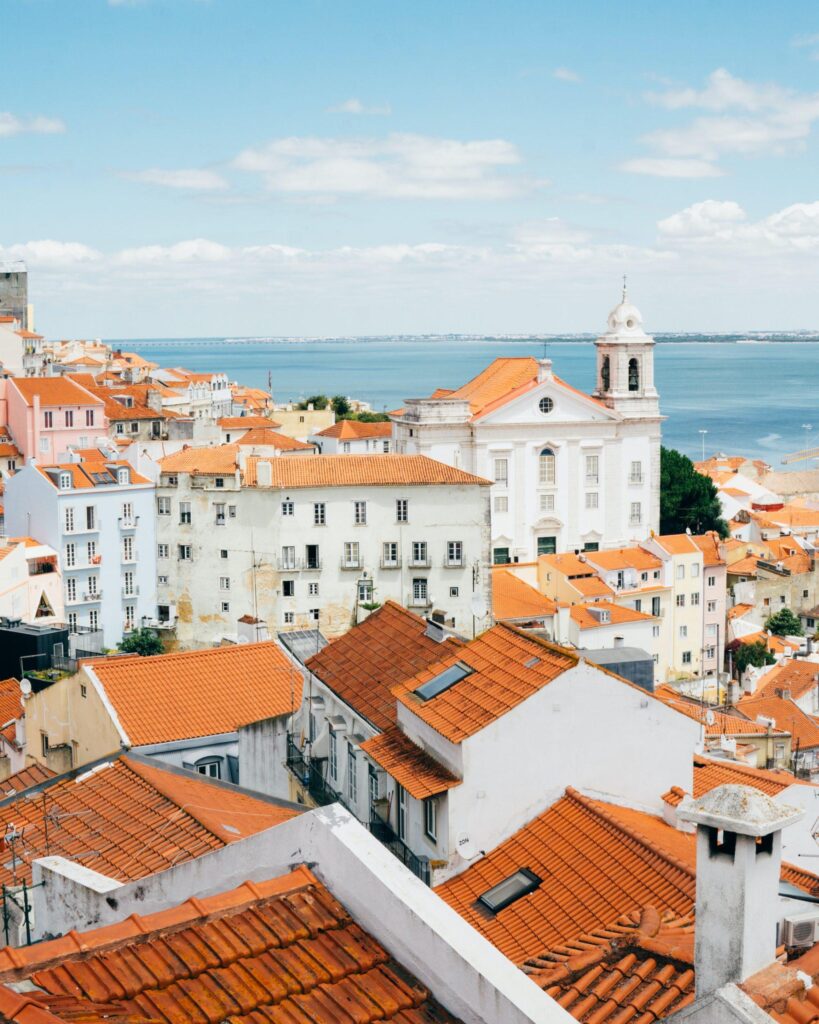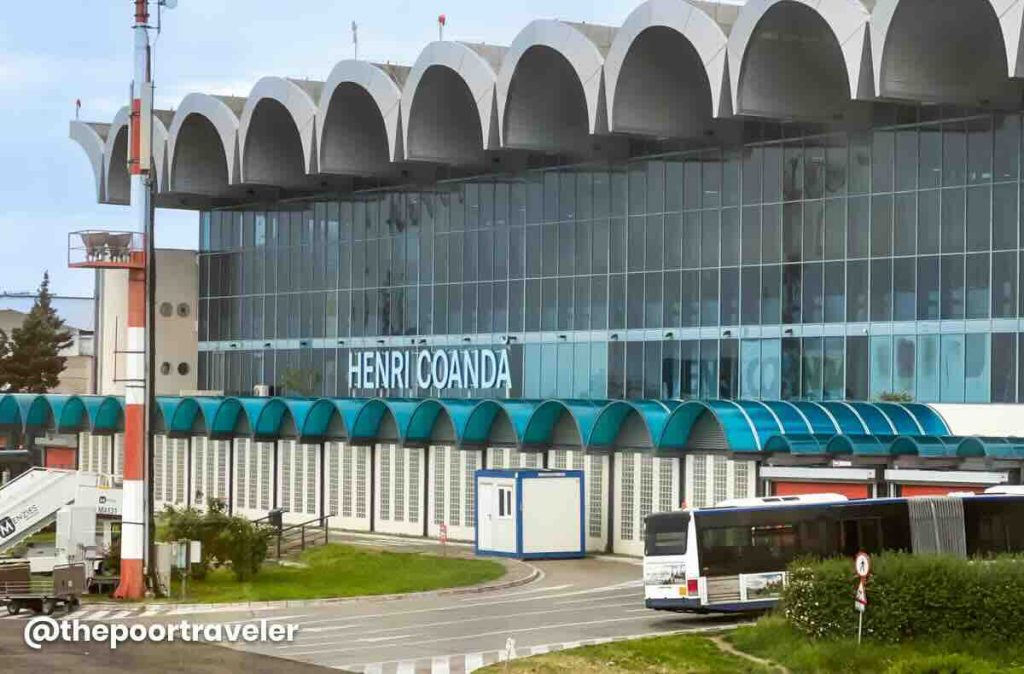The República Portuguesa (Portuguese Republic) lies in southwest Europe sharing borders with Spain to the east and north while harboring the Atlantic Ocean to its west. The population of Portugal is over little over 10 million people with Lisbon as its capital and largest city.
During the 15th and 16th centuries, Portugal was a world maritime superpower and force to reckon with. The empire stretched from Brazil to Macau and to many parts of India such as Goa, Daman, Diu, etc. Portugal has a rich history and a diversified culture that is influenced by many colonized regions and eras.
Portugal is a developed country with a very high standard of living and a thriving economy. The country is an active member of the European Union, the United Nations, the World Trade Organization, the World Bank Group, and many other progressive international organizations.
Other features that Portugal is popular for internationally include spectacular beaches, scrumptious cuisine, and extraordinary wines. Other features such as arts & architecture, sports, music, and festivities are also a big attraction for foreigners. Due to these, and other reasons, a sizeable population in the United States of America aspires to relocate to Portugal.
We will explore various options and processes to gain legal long-term and permanent residency in Portugal as well as several aspects that are associated with relocation.
Types of extended-stay Visas Offered by Portugal
The United States of America is listed among the ‘exempted’ country on the visa-exempt third countries list. The term ‘third country’ is applied to countries that are not part of the EU but enjoy more or less the same advantages. Other countries included in the ‘third country exempt’ list are Australia, Argentina, Brazil, South Korea, Canada, and Brunei.
The exemption applies to travelers who plan to stay beyond the stipulated 90-day limit. Once the traveler enters Portugal, he/she can stay inside Portugal for 90 consecutive days, or travel in and out during the stay, however, the total number of days stayed can not exceed 90 days within a 180-day period.
Documentation and other requirements are listed below:
- Travelers must possess a valid travel document (passport, etc.). Validity is constituted when the document has at least 3 months expiry remaining beyond the intended day. Meaning whereby that if the traveler plans to stay in Portugal for 3 months, the passport must be valid for six from the time of entry.
- Prove beyond doubt that the traveler has the financial means to support decent subsistence in Portugal
- Lastly, the traveler is not registered in the Serviço de Estrangeiros e Fronteiras (SEF) or the Schengen Information System.
Additionally, if a US citizen enters Portugal from a border that is not subject to border control, he/she shall state this fact within 3 days (working days) from the time of entry.
Short-term visas
The visa-exempt status enjoyed by US citizens is exclusively for traveling as a tourist or business (meetings, seminars, etc.). US traveler is not permitted to engage in any commercial activity such as employment or trade during his/her stay. For that purpose, he/she must apply for a long-term or short-term visa.
Types of short-term visas available to US citizens are:
- Regular short-term visa for seasonal work (valid for 3 months)
- Extended short-term visa for seasonal work (09 months)
Requirements
Both visas must be applied through SEF or a regional delegation. A standard application form is filled out and signed by the applicant or his/her representative and submitted at the aforementioned offices along with the below-listed documents:
- Personally delivered application signed by either the applicant or in the case of a minor, by their legal representative.
- Recent photographs on a black background (must be identical and easily identifiable)
- Valid travel documents (validity as per tourist entry requirements) such as passport, etc.
- Documentary proof of financial means to support a decent living
- Proof of accommodation (rental or otherwise)
- Permission to check the Portuguese criminal record by SEF (awarded by the applicant in the same standard form)
- Return tickets dated according to the visa applied for
- Contract for seasonal work in Portugal (detailing remuneration, accommodation, benefits, purpose and type of work, position, etc.)
In the case where a seasonal work visa is applied for extension below additional requirements are applicable:
- Extended contract of seasonal work or a new contract with another employer in the territory specifying the nature, time & type, place, duration, remuneration, etc.
- Proof of enrolment with the tax administration and social security
- Health insurance (detailing the type and extent of coverage available)
- Clearance from the relevant authority that the work is permissible and if special qualifications apply.
- Proof that the applicant has in his/her possession or has access to a minimum $45 for each day spent in Portugal
Fee structure
The fees applicable for short-term seasonal work visas vary depending on individual circumstances and are subject to change from time to time. Applicants can find out the specific fees applicable through the Portuguese official immigration website by submitting their email addresses and case details.
However, generally, the rates are in approximation to the ones pointed out below:
- Adults: $110
- Children aged 6 to 12: $55
- Children below 6: No charges
The process begins by filling out the standard application form and submitting the same at the SEF office along with the required documents and receipt of fee payment.
Work Visa
Acquiring a work visa is a means to stay in Portugal for longer durations. A work visa is applied when a US citizen obtains gainful employment in Portugal (whether by a Portuguese employer or foreign company based out of Portugal). In any case, the employer has to satisfy the authorities that the subject position could not have been filled by a Portuguese citizen or resident.
Aspirants may apply for a suitable job through online platforms or a placement agent in Portugal. The agent may charge some percentage once the offer letter is received by the applicant. Moreover, the aspirant when gains employment, the employer requests immigration through a formal letter of invitation in favor of the applicant. The applicant then submits the offer letter, peripheral documents, and the letter of invitation and submits his/her case to the Portuguese embassy in the US.
Requirements
- The requirements for a Portuguese work visa are as under:
- Valid passport
- Recent photographs
- Offer letter
- Letter of invitation
- Work contract
- Evidence of sufficient financial means (minimum $45 for each day spent in Portugal) as per the provisions provided in Order Number 1563/2007, of 11/12
- A criminal record provided by authorities in the US stating that the holder has a clear criminal record and is not under investigation for any legal activities
- Health insurance (travel insurance too, in some cases)
- Standard visa application form duly filled and signed
- Academic record (school certificates, degrees, certifications, etc.)
Golden Visa
A Golden Visa is a type of Residence Permit for Investment Purposes. The program to grant Golden Visas was initiated in 2012. A US citizen who is interested to invest the required capital in Portugal can apply for the Golden Visa and gain the following benefits:
- Temporary residence permit of Portugal (a waiver to enter and exit Portugal as pleased)
- Visa exemption to travel anywhere within the Schengen region
- Qualify to apply for permanent residence
- Qualify for Portuguese citizenship by naturalization
Requirements
The requirements that qualify an applicant for a Golden Visa are laid out in Article 90-A of the Portuguese Immigration Law (amended 2012). It states that a third-country investor can avail of the Golden Visa scheme if one of the following conditions are met.
- Transfer of capital in value of $1.6 million
- Creates at least 10 jobs
- Procures property worth $500,000 or above
- Purchase a property that is 30 years or older worth $300,000
- Invest $500,000 or more in a scientific or technological research facility in Portugal
- Invest $200,000 or more in arts and culture or reconstruction and upkeep of national heritage
- Investing $500,000 or more to build a commercial unit (mall, market, etc.) along with creating at least 5 job positions of permanent nature, or supporting existing 5 permanent jobs, for a minimum period of 05 years
The above-mentioned conditions can be read in detail on the Portuguese official immigration website. Note that these are qualifying requirements, the documentation requirements are more or less similar for all types of visa applications.
Retirement Visa
US citizens who have a steady pension allocated to them can obtain a retirement visa in Portugal. This visa allows the holder to live in Portugal without the need to work. The visa is valid for 2 years initially and can be renewed subsequently for 2 years and 1 year period totaling up to 5 years in all.
A person who has lived on a retirement visa for 5 years in Portugal qualifies to apply for permanent residency status. Article 80 of the Portuguese Immigration Law states the following requirement visa:
- Evidence to support a regular monthly/annual income that can support the applicant as well as his/her dependents without depending on the social welfare system
- Prove that the applicant has fulfilled their tax obligations while in the country, and has the capacity to do so in the future as well
- Must have lived in Portugal on a temporary permit for at least 5 years
- Certification of qualifying for the A2 or higher Course on Portuguese as the Host Language OR
- Certificate of completion of Basic Portuguese issued by IEEP OR
- Certification of Basic Portuguese Course issued by an authorized establishment
Gaining naturalized citizenship in Portugal
A US citizen can apply to become a naturalized citizen of Portugal by undergoing the following process:
- Gain legal residence in Portugal for at least 5 years (through a visa or by marrying a Portuguese citizen)
- Learn basic Portuguese language
- Maintain a clean criminal record
- Have access to sufficient financial means to support him/herself and dependents
- Demonstrate that he/she has assimilated into the Portuguese culture and accepts the social norms of the host country
- If the application is approved the applicant is invited to a ceremony to pledge allegiance
- Receive the Certificate for becoming a Portuguese national
Things to consider before relocating to Portugal
While the aspirants research the ways they can stay in a foreign country for the long-term or even relocated permanently, they seldom worry about the factors associated with the relocation process. Failing to know about the society, culture, traits, and behavior of the host country, may cause cultural shocks later on.
Some of the things to study about any country, in our case Portugal, are elaborated here.
Real Estate and accommodation
Among the most basic necessities of humans is the need for appropriate shelter. Living arrangements in a new country require thorough research and comparisons to come to an educated decision. The process of buying a property in a new country for the purpose of accommodation is more complex than renting out.
The tabulation below reflects a loose picture of the real estate market of some of the major locations and cities of Portugal.
| Estimates based on ONE BEDROOM apartment | |||||
| S# | City | Key neighborhoods | Rental | Ownership | Area Type |
| 1. | Lisbon | Alfama, Baixa, Chiado, Bairro Alto, Belem, Principe Real | $600 – $1,500 | $250k – $300k | A historic city with charming architecture. Hosts stylish boutiques, gardens, cafes, & entertaining nightlife |
| 2. | Porto | Ribeira, Cedofeita, Foz, Boavista, Miragia, Vila Nova de Gaia | $700 – $1,000 | $100k – $300k | 2nd largest city with lively riverfront with a charming aura. Famous for port wine. |
| 3. | Cascais | Estroll, Birre, Quinta da Marinha, Monte Estroll, Sao Dao do Estroll | $700 – $1,200 | $250k – $600k | Ideal place for retirees and expats. Famous for stunning beaches, warm weather, & lush golf courses. |
| 4. | Algarve | Lagos, Albufeira, Vilamoura, Tavira, Portimao | $900 – $1,200 | $150k – $200k | Shares characteristics with Cascais |
| 5. | Madeira | Funchal, Santa Cruz, Machico, Calheta, Ponta do Sol | $700 – $900 | $100k – $250k | A gorgeous island city with laid back lifestyle and beautiful scenery. A quieter location. |
- Note that the variation in prices (rental and purchase) is dependent on the type of accommodation, amenities, distance from schools, hospitals, and the age of the structure (building, etc.)
How to choose a place to live in Portugal
The best place to live is totally dependent on the needs and preferences of the individual. Factors such as available finances, cost of living, type of neighborhood, distance from amenities such as schools, hospitals, etc., and the vulnerability of prices in the future.
Here are a few common factors that must be included in the buying/renting process.
- Climate: Portugal has a diversified climate, where some places are warmer than others. It is advised that the weather be taken into research with a long-term perspective. Sunny days may feel pleasant for a week or two but not quite so for longer durations.
- Cost of living: another deciding factor is the cost of living. The distance from residence to the supermarket, the distance between the supermarket and the wholesale market, the price differences, and other factors influence the cost of living.
- Availability of reasonable accommodation: in some cases, a person may choose an area but the lack of suitable accommodation may pose an issue. It is suggested that the person should research 3 locations to safeguard against unwanted surprises.
Areas to avoid in Portugal
As a country, Portugal is a very safe and peaceful country. Organized crimes are not an issue here; however, some areas may have a crime rate higher than others. These are isolated incidents that take place often in solitary places or at night. However, as a rule of thumb, areas that showcase the below-listed characteristics shall be avoided anywhere.
- High-crime areas: As stated earlier, some areas experience several incidents of mugging, snatching, or hooliganism, while others may have one or two such incidents in months. It is prudent to ask around the local realtors and police stations about the crime rate in the area.
- Industrial zones: Areas that host factories, mills, manufacturing units, etc., are often populated with a migrated working class. Naturally, when different nationalities share a space, tensions usually occur. While we cannot say that such areas are unsafe, mere pollution and extraordinary industrial activities are enough to disturb peace, and hence, shall be avoided.
- Remote areas: Avoiding remote areas is advised as living farther from the city may cost more. Secondly, due to the lack of population, carrying out a petty crime here is easier than otherwise.
- Infrastructure: Portugal is a historic country with many towns and localities dating back to the 15th century. The lanes and streets tend to be narrow, the sewage system may be obsolete and old, etc. Hence a person should look for areas that are newly constructed and offer a modern infrastructure.
Cultural Aspects of Portuguese Society
The primary social fabric of Portugal is influenced by a rich history and cultural heritage. Values of trust, truthfulness, and respect are deeply embedded in society. Though the times have changed, yet there are some aspects of society that have their roots in tradition and history.
Here are some social norms that a US citizen must be aware and eager to assimilate to.
- Family & Community: A number of Portuguese families prefer living with or close to their family even in this time and age. Cousins and cousins of cousins are known and friendly to each other. Family get-togethers, that happen often, are a source to bring the family close. Similarly, community members tend to be helpful and very accommodating to their neighbors. Sharing homemade delicacies on occasions and festivals is integral and is expected of everyone.
- Hospitality: Portuguese are extremely hospitable folk, if nothing else, a cup of warm tea is sure to be served at a sitting. Courtesy towards guests is sincere and honest. A guest must know when to ask to leave politely and not overstay. Because the Portuguese host will never ask a guest to leave.
- Food & wine: Portuguese just love to dine leisurely and drink the best wines on offer. No gathering is complete without good food and decent wine. The cuisine is diverse, flavorful, colorful, and scrumptious.
- Music & arts: History has blessed Portugal with an amazing sense of music and arts. People of all ages enjoy listening to music, singing at festivals, and performing for an audience. Fado is a form of Portuguese that is popular among aficionados for its simplicity and glamor.
- Language: Lastly, language is one thing that can connect people quickly and solidly. Portuguese language and evolutionary language rooted in the Latin language. Portuguese citizens take extreme pride in their language, and prefer it over any other language, even when they know a secondary language. It can not be emphasized enough that a foreigner who wishes to relocate to Portugal must possess basic speaking skills to navigate easily. Gradually with time these skills shall be honed and developed, especially for aspirants who plan to obtain citizenship in the future.
The healthcare system in Portugal
The National Health Service (Serviço Nacional de Saúde, SNS) looks after the healthcare system in Portugal. The system provides comprehensive healthcare to all citizens and residents. The system is primarily funded by the taxes collected from the public, while some portion is supported by the state, philanthropic donations, and the private sector.
Under the healthcare system, various types and cadres of facilities are operated including trauma & emergency hospitals, primary care units, mental and psychological treatment centers, rehabilitation wards, and long-term palliative care hospitals. The system is regarded as one of the best in the region and is considered at par with modern nations.
Alternatively, the public can choose the private healthcare system too. This is costly and many treatments may not be included in the health insurance unless specified otherwise. It is suggested that for the initial few years, the newly relocated individual relies on the public healthcare system.
Some of the major hospitals in Portugal are as under:
- Hospital de Santa Maria – Lisbon
- Hospital da Luz – Lisbon
- Sao Jao Hospital – Porto
- Centro Hospital – Porto
- CUF Hospital – Lisbon
Moreover, there are several health insurance companies that operate in Portugal and provide very comprehensive coverage at a competitive premium.
- Medis
- Allianz Care
- Multicare
- Advance Care
- Globality Health
Education System in Portugal
Education for children between the ages of 6 to 18 is compulsory and provided free by the state. The Ministry of Education and Science oversees the education system in Portugal. The education ladder consists of primary, secondary, and higher education. Pre-schooling is provided but is not compulsory.
Furthermore, secondary education is subdivided into general and vocational education; the latter is aimed to prepare skilled human resources for industries. Higher education is imparted through universities, polytechnic institutes, and other specialized institutions. Generous scholarships for bright and brilliant students are available to those who cannot afford higher education.
Some of the well-known and reputable schools in Portugal are:
- St. Julian’s
- Oeiras International School
- St. Dominic
- Colegio Valsassina
- Escola Secundaria de Cascais
On the other hand, the major universities of Portugal are listed below:
- University of Lisbon
- University of Porto
- University of Coimbra
- Nova University Lisbon
- University of Aveiro
The transportation system of Portugal
Portugal has a very well-structured, detailed, and reliable transport system. As with other developed European countries, the transport system has a characteristic of its own. The system includes the below modes of transport:
- Buses: Probably the most common mode of transportation is buses. Buses are operated by private companies who compete at offering fine quality vehicles and competitive fares. Long-distance buses are also available to travel between cities.
- Trains: The train system of Portugal is one of the oldest in Europe. National and domestic trains run at regular intervals and are always on time. Major cities such as Lisbon, Porto, etc., are connected through high-speed trains along with rural areas and counties.
- Metro: Metro is a blessing for travelers on a tight schedule. Moving within a city becomes efficient and cheap through metros. Portugal has a modern metro system in all major cities, while trams run through narrow streets and old towns.
- Airports: Portugal has 4 highly modern international airports each in the major cities of Lisbon, Porto, Faro, and Madeira. Domestic airports such as Beja, Braga, Coimbra, Evora, etc. operate domestic flights with cheap fares and continuous flights.








